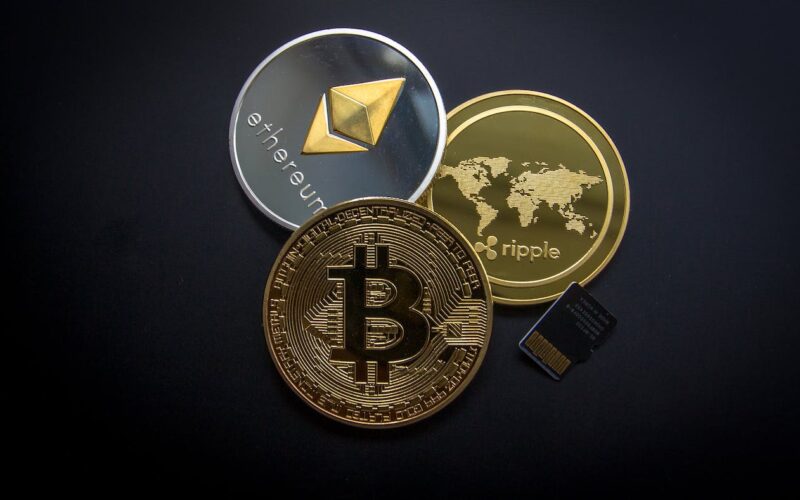Blockchain technology, the revolutionary foundation of cryptocurrencies such as Bitcoin, has ushered in significant disruptions across diverse industries. One particularly intriguing realm of impact is within intellectual property, notably copyright. In this exploration, we navigate the complexities of blockchain, unraveling its multifaceted implications on intellectual property rights. Delving into the digital economy, we scrutinize the pivotal role played by Bitcoin in reshaping financial landscapes. Start your trading journey by using a reliable trading platform such as Trader AI.
Blockchain Technology and Its Role in Copyright
Explaining Blockchain Fundamentals
Blockchain operates as a decentralized and distributed ledger, providing a secure and transparent way to record transactions. Its core features include immutability, transparency, and consensus mechanisms. These attributes make blockchain an ideal candidate for addressing challenges in the realm of copyright.
Decentralization and Security Features
Decentralization ensures that no single entity has control over the entire network, reducing the risk of data manipulation. The cryptographic nature of blockchain enhances security, making it difficult for unauthorized parties to alter or tamper with data.
How Blockchain Addresses Copyright Challenges
In the digital age, copyright infringement is rampant, with the ease of copying and distributing digital content. Blockchain introduces a paradigm shift by enabling transparent and tamper-proof copyright registration. Smart contracts, self-executing contracts with the terms directly written into code, automate licensing and royalty payments, streamlining the copyright process.
Bitcoin and Digital Assets
Understanding Bitcoin as a Digital Currency
Bitcoin, the pioneer cryptocurrency, operates on a decentralized peer-to-peer network. It enables secure and anonymous transactions without the need for intermediaries like banks.
Role of Bitcoin in the Digital Economy
Bitcoin’s role extends beyond a mere digital currency; it serves as a store of value and a medium of exchange in the burgeoning digital economy. As digital assets proliferate, understanding the implications for intellectual property becomes crucial.
Implications for Intellectual Property and Copyright Protection
The decentralized nature of Bitcoin challenges traditional copyright enforcement methods. While it enhances privacy, it also demands innovative approaches to copyright protection. Blockchain’s transparency can potentially be harnessed to trace and validate ownership of digital assets.
Smart Contracts and Copyright Licensing
Overview of Smart Contracts in Blockchain
Smart contracts, executable code deployed on a blockchain, automate contractual agreements. In the context of copyright, these contracts can revolutionize licensing processes by self-executing when predetermined conditions are met.
Potential Applications in Copyright Licensing
Smart contracts streamline copyright licensing by automatically enforcing terms and conditions. This reduces the need for intermediaries and minimizes the risk of contractual disputes. Content creators can receive instant and transparent royalty payments, enhancing the efficiency of the copyright ecosystem.
Advantages and Challenges of Using Smart Contracts for Intellectual Property Transactions
While smart contracts offer efficiency and transparency, challenges such as legal recognition and adaptability to evolving copyright laws remain. Collaborative efforts between technologists and legal experts are essential to overcome these challenges and integrate smart contracts seamlessly into the copyright landscape.
Copyright Protection on the Blockchain
Current State of Copyright Protection in the Digital Realm
The current copyright protection landscape faces significant challenges in identifying and preventing infringement. Blockchain offers a decentralized and incorruptible database that can serve as a comprehensive copyright registry.
How Blockchain Enhances Copyright Protection
Blockchain’s timestamping and immutability features provide a reliable record of copyright ownership and creation dates. This can serve as irrefutable evidence in legal proceedings, strengthening copyright enforcement.
Real-world Examples of Blockchain-based Copyright Solutions
Initiatives like Mediachain and Verisart leverage blockchain to create decentralized databases of media assets, providing a secure and transparent way to track ownership and provenance.
Challenges and Legal Considerations
Potential Legal Issues Surrounding Blockchain and Copyright
Legal frameworks must adapt to the decentralized nature of blockchain. Questions around jurisdiction, liability, and legal recognition of blockchain-based evidence require careful consideration.
International Perspectives on Copyright and Blockchain
Harmonizing international copyright laws with blockchain applications is crucial. Collaborative efforts between countries can establish standardized practices, facilitating the global integration of blockchain into copyright systems.
Evolving Regulatory Landscape and Its Impact on Intellectual Property
As blockchain and cryptocurrencies gain mainstream acceptance, regulatory frameworks are evolving. Clarity in regulations is essential for fostering innovation while safeguarding intellectual property rights.
Future Trends and Innovations
Emerging Technologies Shaping the Future of Copyright and Blockchain
Technological advancements, including artificial intelligence and machine learning, are likely to further enhance copyright protection on the blockchain.
Potential Developments in Decentralized Copyright Registries
Decentralized copyright registries may become more prevalent, ensuring a transparent and global record of intellectual property ownership.
The Role of NFTs (Non-Fungible Tokens) in Transforming Intellectual Property Transactions
NFTs, unique digital tokens representing ownership of digital assets, have gained traction. Exploring their potential integration with copyright could revolutionize how intellectual property is bought, sold, and traded.
Conclusion
In conclusion, the intersection of copyright, blockchain, and Bitcoin presents both challenges and opportunities. Understanding the implications of these technologies is vital for content creators, legal professionals, and policymakers alike. As we navigate this evolving landscape, collaboration between technology innovators and legal experts will be paramount to harness the full potential of blockchain in shaping the future of intellectual property rights.




